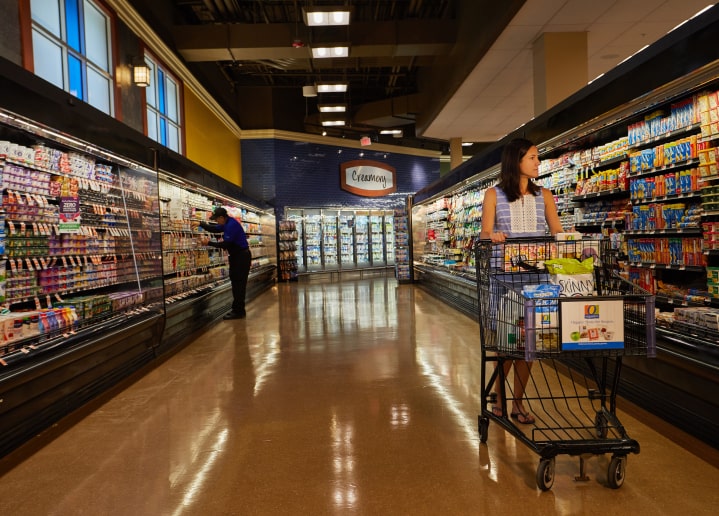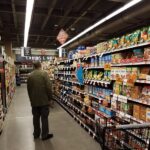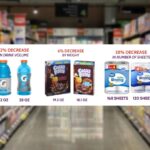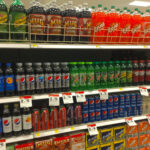
The election is over. So how much longer will lawmakers genuinely be concerned about grocery prices?
The answer may depend on your level of trust in your elected officials – or your level of cynicism. But after a year in which members of Congress urged action on high grocery prices, shrinkflation, grocery industry consolidation, price gouging, digital price tags and digital coupons, a group of lawmakers is now urging an investigation into potential false advertising and inaccurate pricing they say could be cheating shoppers out of their hard-earned cash.
Democratic U.S. Senator Elizabeth Warren of Massachusetts, Democratic U.S. Representative (and now Senator-elect) Adam Schiff of California and 14 of their Congressional colleagues have sent a letter to the Federal Trade Commission and the Department of Agriculture, asking them to investigate major grocery chains “for potential false advertising and predatory pricing practices.”
The impetus for their letter, dated this past Sunday, was a recent settlement between Albertsons and seven California counties. Albertsons agreed to pay nearly $4 million to settle accusations that it “unlawfully charged customers prices higher than their lowest advertised price” and mislabeled weighted goods so that they “had less product in the package than was displayed on the package label.”
Warren, Schiff and their colleagues want to know if this is also happening outside those seven California counties. “We urge you to investigate whether Albertsons or other major grocery chains have engaged in similar predatory practices nationwide, and to hold these companies accountable if they have violated federal laws,” their letter reads.
To support their suspicions that large grocery chains may not always be acting on the up and up, the lawmakers recite a short laundry list of unrelated concerns. “For example, Stop & Shop charged higher prices at a largely minority, working-class, urban location in Boston, Massachusetts than it did at a suburban store location,” the letter points out, citing a recent concern brought up by a local activist group. Kroger is rolling out digital price tags in many of its stores, the letter goes on, “which may allow the company to surge grocery prices and exploit consumers” – an accusation Kroger has denied. “And the proposed $24.6 billion merger between Kroger and Albertsons is poised to further drive up grocery prices and harm grocery store workers and consumers,” the letter alleges, while Kroger and Albertsons insist their merger would result in lower prices.
While the FTC and two states have already filed legal challenges to that proposed merger, there’s been no legal or regulatory action aimed at Stop & Shop’s urban-versus-suburban pricing practices or Kroger’s digital price tags.
All the more reason to investigate them, the lawmakers suggest. Taken together, they say, all of these pricing practices are not transparent to shoppers – and the larger and more powerful these grocery chains become, the more we don’t know what they may be getting away with at consumers’ expense. “Large grocery companies have doubled down on using their significant market power to hike prices for essential goods and take advantage of customers,” the lawmakers argue.
Of the letter’s 13 signatories who were on the ballot yesterday, 11 of them won their races and the other two are currently leading as of this writing. Concern about their constituents’ grocery bills may have helped in all of their victories – but their ability to follow through and produce results for consumers could help determine just how satisfied voters will be with their choices.
Image source: Albertsons











If Pocahontas Warren and lying Shifty Schiff are leading the charge, it tells you what a colosssal waste of time and taxpayer money this effort is. Thank God we averted a Kamala presidency. This idiot accused retailers of price gouging despite margins that are typically only 1-2%.
My, oh my.
Why isn’t it that this same tribe is investigating prosecutors who fail to prosecute shoplifters or staff who steal from the stores? Both significantly higher in recent years.
Urban stores often have higher costs on many things from rent, utilities, shrinkage and theft, shoplifting, security, parking and more.
Or supplier companies who raise prices on water, fuel and chemicals needed to grow and transport food?
Or utility companies who have to charge more for greener energy? A grocery store uses A LOT of energy for refrigeration, freezing, HVAC, cooking, baking, lighting, and cleaning.
OR their own government wasteful and inflationary spending?
Or their own ignorance of what inflation is?
Or union labor that costs more than non union labor?
Even inflation of one percent means prices are increasing.
Only with deflation will prices naturally fall.
The only other ways grocery prices will fall is with increased efficiency and lower costs of goods and selling them or increased competition (but that doesn’t work so well with airfares, fuel prices, utility charges, and others).